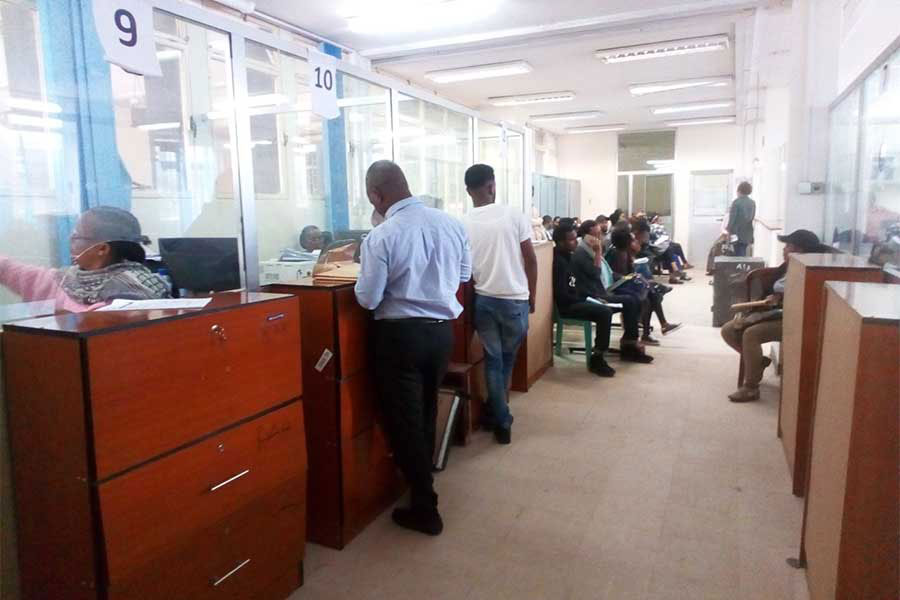
Fortune News | Feb 11,2023
Oct 30 , 2021
By Morounfolu (Folu) Olugbosi (MD)
COVID-19 was the only infectious disease that killed more people than TB in 2020. The regional numbers have held steady this past year, according to the World Health Organisation (WHO), but a deeper dive shows that many cases of TB were missed, writes Morounfolu (Folu) Olugbosi (MD), senior director of Clinical Development at TB Alliance. He works with the clinical development of products in the TB Alliance portfolio and helps to oversee clinical trials in TB endemic countries and heads the South Africa office.
Before COVID-19 came along, tuberculosis (TB) was a primary focus of health authorities in sub-Saharan Africa. In 2019, approximately 1.4 million people were diagnosed with TB in the region, but epidemiologists estimated that one million more had TB but were neither diagnosed nor treated.
The scope and intensity of the global TB epidemic is fueled by antiquated and inadequate TB drugs, most of which were developed more than half a century ago. But, given how contagious TB is, we need to find and treat many more people. It is a disease that strikes impoverished communities the hardest, and those same communities can be hard to reach with healthcare services.
And then came COVID-19, the only infectious disease that killed more people than TB in 2020. The regional numbers have held steady this past year, according to the World Health Organisation (WHO), but a deeper dive shows that more attention is needed.
In Nigeria, my home country and Africa’s most populous, nearly three out of every four cases of TB were missed. Ethiopia, Africa’s second-largest country, fared better, missing less than one out of every three cases. Kenya, a hub for international development in East Africa, missed almost half its TB cases. South Africa – where I work and which has one of the heaviest burdens in the world of drug-resistant TB infections, TB/HIV co-infections, and all TB infections in total – missed 40pc of its cases in 2020.
Earlier this year, researchers analysed how public health resources previously dedicated to addressing TB were allocated instead to handling the COVID-19 pandemic. The drop in cases of TB that were reported and treated at that time indicated that many more infections were slipping through the cracks of the world’s badly overstressed healthcare system. The researchers concluded that COVID-19 cancelled out the last 12 years of advancements in finding and treating people with TB.
Last month, a new report found that the number of people treated for TB in 2020 declined by 18pc. Even more troubling, the number of people treated for the worst cases of drug-resistant TB strains declined by 37pc – even with 41 countries in varying stages of evaluating and implementing a new regimen for these cases that my organisation developed. Like all strains of TB, drug-resistant TB can be easily spread by a cough or a sneeze – and it is far more difficult to cure. In some regions, as many as 40pc of new TB cases are drug-resistant.
In 2018, the United Nations General Assembly held a high-level meeting on TB attended by more than 1,000 people – including the president of Nigeria and 14 other heads of state. At the meeting, pledges amounting to 13.5 billion dollars annually were made to help governments find and treat TB patients, with an additional two billion dollars pledged to boost the research and development efforts needed to develop new cures, and new ways of diagnosing infections. We are less than halfway to meeting these pledges, and as a result, TB has increased in strength in sub-Saharan Africa and other regions of the Global South.
As bleak as all this sounds, 2021 is on track to be much worse. Initial estimates from epidemiologists point to a lack of direct response to TB in projecting an escalation of missing TB cases. Even though both COVID-19 and TB are respiratory infections, TB lost whatever sunlight it may have once had.
There are some countries that have managed to keep moving forward though. Zambia, which missed one-third of its estimated TB cases in 2020, may actually diagnose and treat a larger share of its TB caseload in 2021. But these success stories are few and far between. All too often, when the going gets tough, programmes that tackle diseases of poverty fall by the wayside.
These diseases do not come in single file, patiently waiting their turn for a chance to wreak havoc. COVID-19 decimated the TB response because that response was weak and vulnerable. Now, we still have to handle another year of COVID-19 along with a resurgent TB.
It is time to strengthen our resolve and tackle all of the diseases that afflict our most vulnerable communities – at the same time. TB has shown us that no one is safe if a contagious infection is thriving, regardless of whether we look for it or not.
PUBLISHED ON
Oct 30,2021 [ VOL
22 , NO
1122]


Fortune News | Feb 11,2023

Viewpoints | Apr 30,2021

Fortune News | Dec 10,2022

Commentaries | Nov 23,2024

Commentaries | Nov 06,2021

My Opinion | Oct 14,2023

Verbatim | May 04,2019

Commentaries | Nov 23,2019

Commentaries | Aug 31,2019

Commentaries | May 01,2020

My Opinion | 131584 Views | Aug 14,2021

My Opinion | 127940 Views | Aug 21,2021

My Opinion | 125915 Views | Sep 10,2021

My Opinion | 123539 Views | Aug 07,2021

Dec 22 , 2024 . By TIZITA SHEWAFERAW
Charged with transforming colossal state-owned enterprises into modern and competitiv...

Aug 18 , 2024 . By AKSAH ITALO
Although predictable Yonas Zerihun's job in the ride-hailing service is not immune to...

Jul 28 , 2024 . By TIZITA SHEWAFERAW
Unhabitual, perhaps too many, Samuel Gebreyohannes, 38, used to occasionally enjoy a couple of beers at breakfast. However, he recently swit...

Jul 13 , 2024 . By AKSAH ITALO
Investors who rely on tractors, trucks, and field vehicles for commuting, transporting commodities, and f...

Jun 28 , 2025
Meseret Damtie, the assertive auditor general, has never been shy about naming names...

Jun 21 , 2025
A well-worn adage says, “Budget is not destiny, but it is direction.” Examining t...

Jun 14 , 2025
Yet again, the Horn of Africa is bracing for trouble. A region already frayed by wars...

Jun 7 , 2025
Few promises shine brighter in Addis Abeba than the pledge of a roof for every family...

Jun 29 , 2025
Addis Abeba's first rains have coincided with a sweeping rise in private school tuition, prompting the city's education...

Jun 29 , 2025 . By BEZAWIT HULUAGER
Central Bank Governor Mamo Mihretu claimed a bold reconfiguration of monetary policy...

Jun 29 , 2025 . By BEZAWIT HULUAGER
The federal government is betting on a sweeping overhaul of the driver licensing regi...

Jun 29 , 2025 . By NAHOM AYELE
Gadaa Bank has listed 1.2 million shares on the Ethiopian Securities Exchange (ESX),...